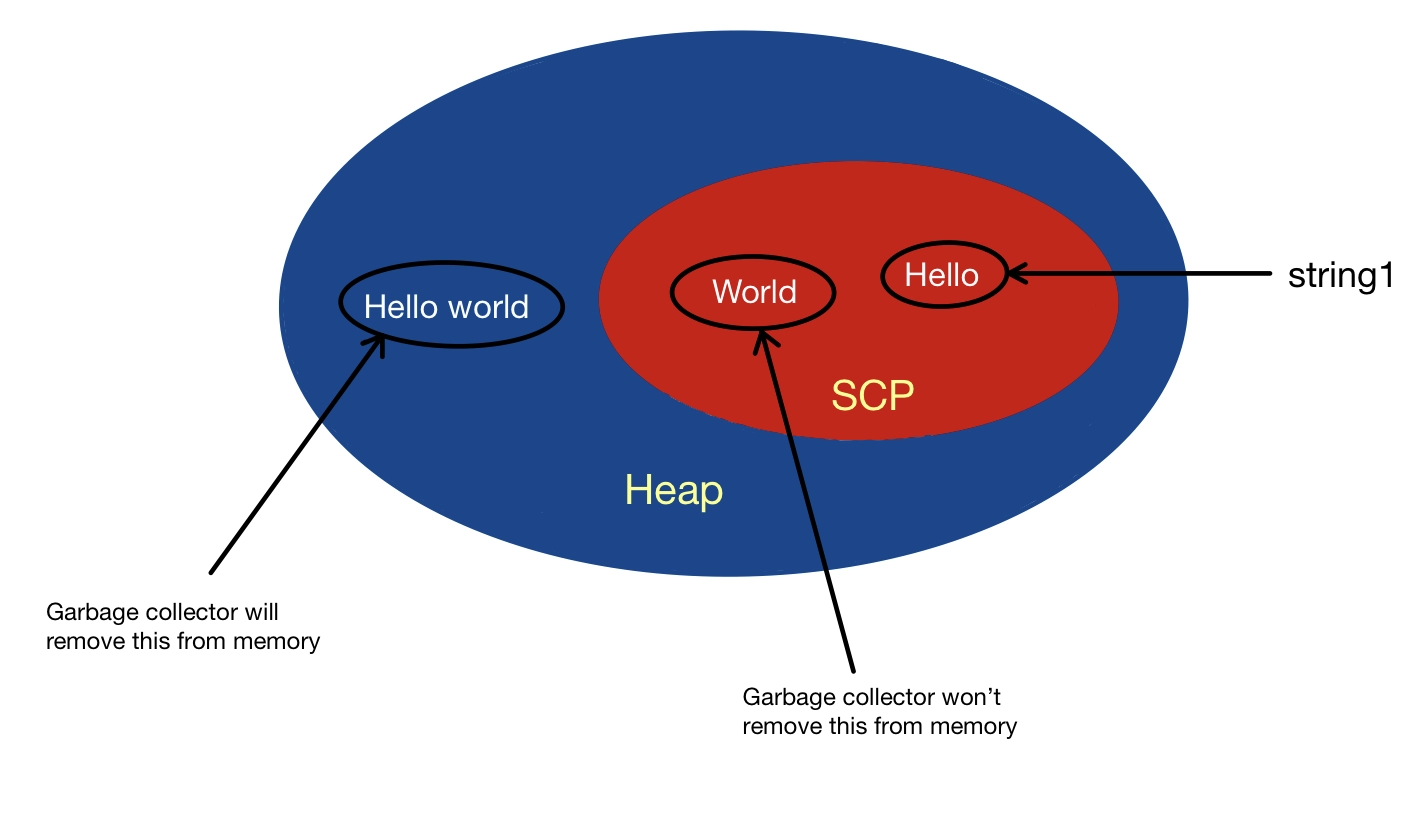Why Are Strings Immutable in Java? Enhancing Code Dependability
Why Are Strings Immutable in Java? Enhancing Code Dependability
Blog Article
Exploring the Benefits of Unalterable Strings in Modern Shows Paradigms
In the world of modern programs paradigms, the principle of unalterable strings stands as a keystone of durable software application growth. By adopting immutable strings, developers can guarantee boosted data stability, improved thread security, streamlined debugging procedures, increased safety and security steps, and efficient performance optimization.
Improved Information Integrity

By protecting against the modification of string objects, immutability gets rid of the risk of unintentional adjustments to the information they hold. This not just enhances the protection of the information but additionally enhances the integrity of the code that relies upon these strings.
Immutability additionally sustains more secure multithreading settings, as concurrent access to immutable strings does not position the danger of data corruption via simultaneous modifications. This building streamlines the procedure of dealing with strings in identical shows situations.
In significance, immutability serves as a safety guard around the data stored within strings, enhancing their honesty by making sure that as soon as defined, their worths remain unchanged throughout the program's execution.

Improved String Safety And Security
Unalterable strings improve the thread security of programs by guaranteeing that when a string object is developed, its worth can not be modified. This home removes the threat of simultaneous threads trying to modify the exact same string concurrently, which can lead to information corruption or inconsistent states in the program - Why are strings immutable in Java?. In a multi-threaded atmosphere, where numerous strings access and manipulate information all at once, the immutability of strings offers a level of security by assuring that the data remains the same throughout its lifecycle
Streamlined Debugging Processes
Given the improved string safety and security assisted in by unalterable strings, a significant benefit arises in the realm of streamlined debugging processes. Unalterable strings, once created, can not be modified, making it easier to trace the flow of data and identify the source of bugs in a program. This immutability guarantees that strings remain regular throughout the execution of the program, decreasing the probability of unforeseen modifications that can bring about errors.
When debugging with mutable strings, programmers usually run into problems where a string's worth is changed unintentionally, making it testing to pinpoint the origin of an insect. Nevertheless, with unalterable strings, the data remains unchanged, enabling programmers to concentrate on examining the real logic of the code instead of tracking down where and when a string was changed improperly.
Additionally, unalterable strings simplify the debugging procedure by allowing easier reproduction of insects. Because unalterable strings do not alter state, developers can recreate and research insects better, bring about quicker recognition and resolution of concerns within the codebase. This streamlined debugging operations ultimately adds to higher software program top quality and boosted total advancement efficiency.

Boosted Safety And Security Measures
Enhancing information security and strengthening system stability, the use of unalterable strings in software applications adds dramatically to boosted safety measures. Unalterable strings, as soon as developed, can not be changed, giving a vital protection versus malicious tampering or unapproved gain access to. By making sure that delicate information stored in strings stays unchanged throughout the program's execution, the danger of data violations or shot assaults is significantly reduced. Why are strings immutable in Java?. Unalterable strings additionally play an essential function in avoiding typical safety and security vulnerabilities such as barrier overflows and SQL injection assaults, as efforts to adjust string information at runtime are inherently restricted.
Furthermore, the immutability of strings enhances the predictability of program behavior, making it easier to verify inputs and protect against unexpected changes that could compromise protection. This predictability simplifies the process of auditing and confirming code, allowing designers to determine prospective security loopholes better. In general, integrating unalterable strings right into software application growth practices not only improves the robustness and dependability of applications however likewise enhances their strength against safety hazards.
Efficient Performance Optimization
When dealing with mutable strings, procedures like concatenation or substring development typically result in the creation of brand-new string items, leading to memory overhead and raised handling time. By enabling strings to stay continuous and stable, unalterable strings help with much better memory management and caching possibilities, inevitably enhancing the total performance of the software application.
Unalterable strings additionally play an important duty in multithreaded settings by advertising thread safety. Why are strings immutable in Java?. my response Because unalterable strings can not be changed when developed, they can be shared throughout strings without the danger of unforeseen adjustments, decreasing the need for synchronization devices and improving concurrency. In addition, unalterable strings simplify debugging processes as designers can rely on that a string's worth will certainly continue to be regular throughout the program's implementation, getting rid of potential mistakes created by mutable state modifications. In verdict, using unalterable strings not only enhances security yet also considerably adds to the efficient performance official site optimization of contemporary software systems.
Final Thought
In conclusion, the benefits of using unalterable strings in modern programming paradigms can not be overemphasized. Improved data integrity, enhanced thread safety, streamlined debugging processes, enhanced safety actions, and effective performance optimization all contribute to the total performance of shows tasks. By incorporating unalterable strings into programs practices, developers can take advantage of an extra robust and reliable codebase.
Immutability, an essential feature of strings in programming languages such as Java and Python, ensures that as soon as a string object is produced, it can not be changed or changed.Unalterable strings enhance the string security of programs by making sure that once a string object is developed, its value can not be customized. Immutable strings likewise play an important duty in avoiding usual protection susceptabilities such as buffer overflows and SQL injection attacks, as attempts to control string data at runtime are naturally limited.
By allowing strings to remain unchangeable and consistent, immutable strings assist in much better memory management and caching possibilities, ultimately increasing the overall efficiency of the software application.
Unalterable strings streamline debugging processes as developers can trust that a string's value will remain regular throughout the why not try here program's execution, getting rid of potential errors caused by mutable state modifications.
Report this page